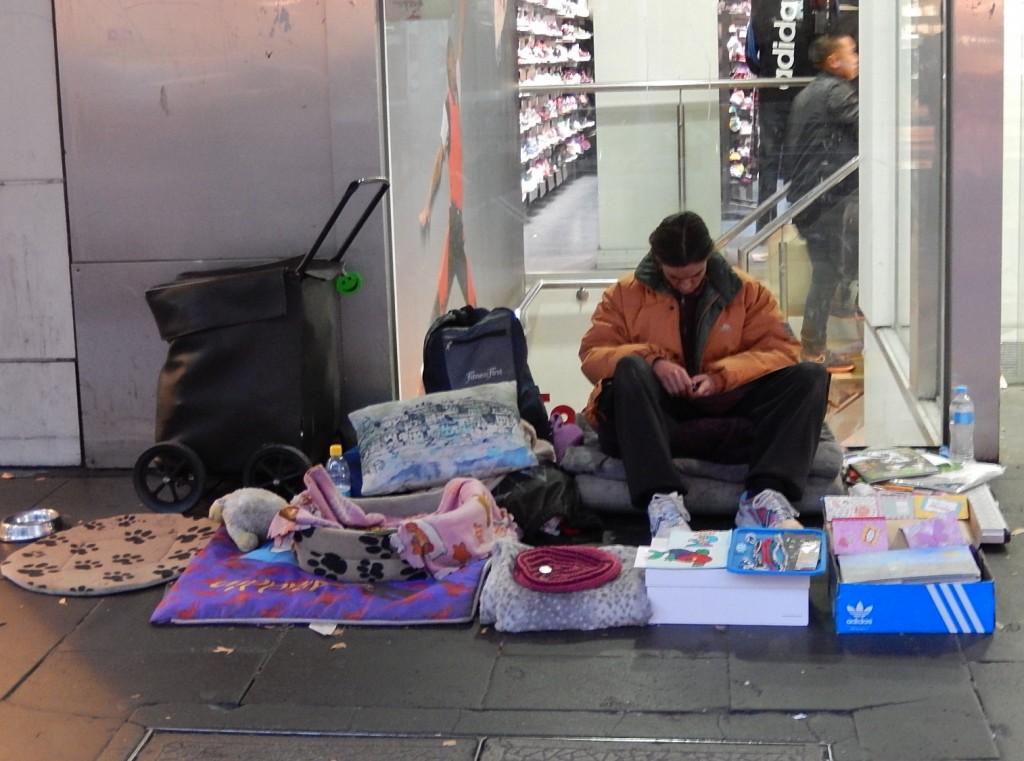
Melbourne homelessness. Photo: Michael Coghlan
Australians continue to battle homelessness despite housing support, an Australian Institute of Health and Welfare (AIHW) report has found.
Housing outcomes for groups vulnerable to homelessness tracked the periods of assistance given to four groups from July 2011 to December 2013.
The groups included victims of domestic violence, people experiencing homelessness at a young age, problematic drug and alcohol users and people with mental health issues.
The AIHW’s head of housing, homelessness and drugs group Geoff Neideck said the report found these vulnerable groups face an increased risk of becoming homeless.
“Whenever people are exhibiting disadvantaged factors, particularly when there are multiple factors, they are less likely to be what you might consider housing ready,” Mr Neideck told thecityjournal.net.
The report assessed the amount and number of times people used homeless agency support for housing assistance over a two-year period.
Specialist Homelessness Services provide assistance to homeless victims or those are at risk of losing their homes.
Just over half of the 244,000 Australians who accessed homelessness services support from 2012-2013 were examined in the AIHW’s report.
Mr Neideck said the housing outcomes of groups vulnerable to homelessness are being affected by a range of factors.
“People who are more likely to be unemployed, have no income or just on government allowance … those with complex issues tend to have poorer housing outcomes,” Mr Neideck said.
Domestic violence victims made up more than 30 per cent of those who accessed homelessness assistance in 2012. Problematic drug and alcohol users, at 9 per cent, accessed homeless support services least.
Young people experiencing homelessness at a young age (18 per cent) and mental health sufferers (20 per cent) made up close to two-fifths of specialist homelessness service clients.
Mr Neideck said problem drug and alcohol users showed the greatest rates of long-term homelessness, according to the report.
“When you look at groups with complex needs like mental health issues, drug and alcohol issues or disabilities, we have found these people have to work through a range of factors to find suitable housing,” Mr Neideck said.
Specialist homeless services provide direct housing assistance and support to address the factors behind people’s homelessness issues.
Mr Neideck said the position of people who seek special assistance from homelessness agencies does improve.
“When these services can work with people who are at risk of losing their housing, most of the time we see people get very good housing outcomes,” Mr Neideck said.
